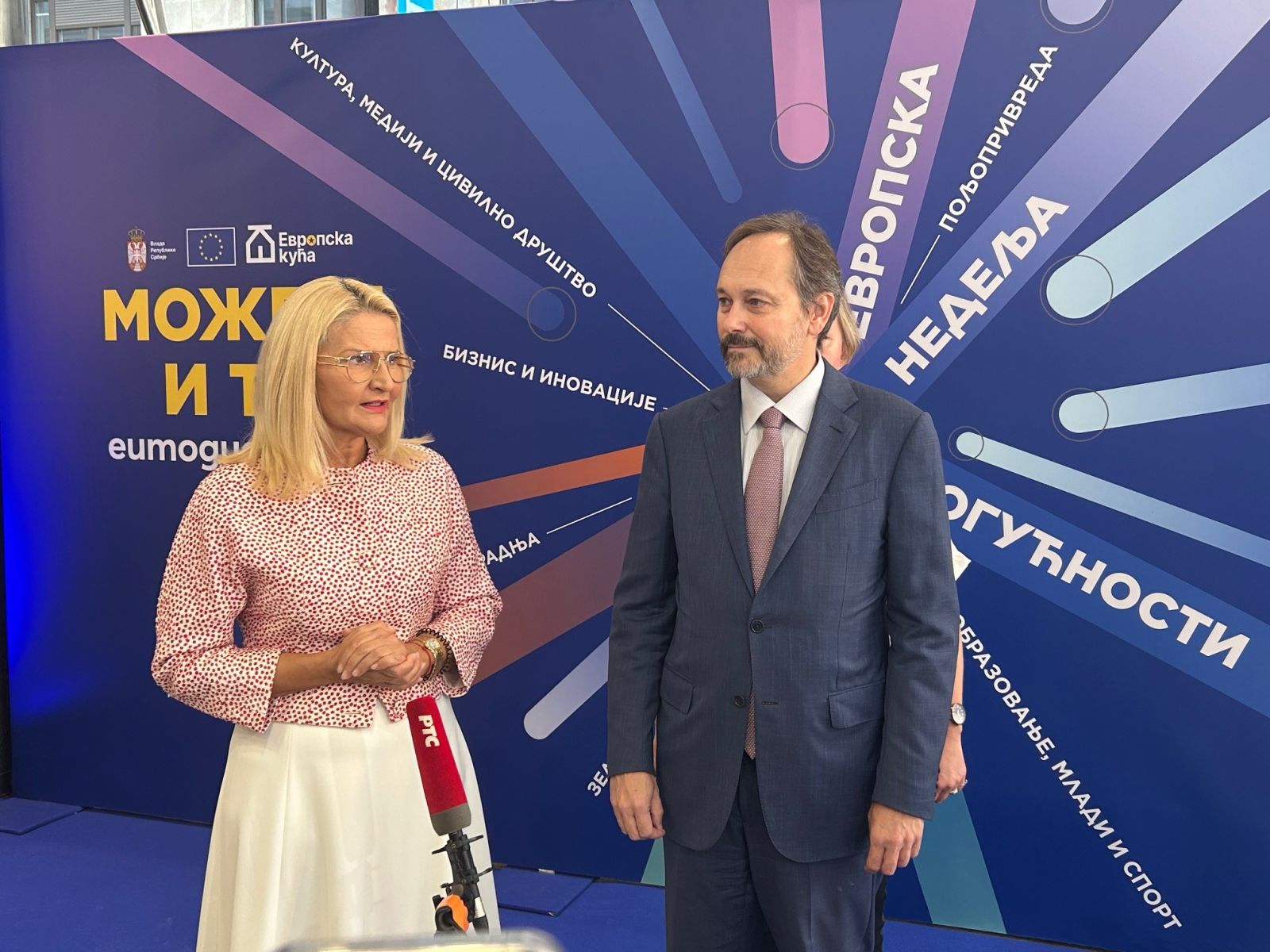The EU Opportunity Week is taking place in the Europe House in Knez Mihailova Street in Belgrade. Head of the EU Delegation in Serbia, Ambassador Emanuele Giaufret explained the plan of financial assistance that the EU would provide to Serbia. Before the opening of the manifestation, Minister of European Integration Tanja Miščević explained what reforms the money would be initially allocated to.
During the Opportunity Week, which is taking place in Belgrade for the second time, Emanuele Giaufret said that as many as 70 sessions would take place covering different activities in which the EU in Serbia is involved.
“All programmes contribute to the progress of Serbian citizens – from entrepreneurship and business to innovations”, Head of the EU Delegation explained what was to be covered by the event.
The first day of the EU Opportunity Week is dedicated to business and innovations, Giaufret announced.
During the first day, Growth Plan i.e. EU financial assistance for the Western Balkan countries will be analysed in detail.
Head of the EU Delegation underlined that economic assistance would be an incentive for Serbian economy.
“The Growth Plan is related to the introduction of new dynamics and EU enlargement, however its focus is on social and economic issues”, Giaufret said for RTS.
He noted that it was necessary for Serbia to get closer to the EU and that the EU should “fuel up” Serbian economy.
“Serbian economy is progressing very well, but it needs to be even better. The Growth Plan also refers to that. Therefore, Serbian market should be integrated into the EU market even before membership; hence, if we make payments between Belgrade and Oslo, it would be just the same as domestic payment without international transfer fees”, the ambassador said.
He explained that people would move across borders much more quickly and they would integrate Serbia into digital market in order to facilitate all activities relating to digital component.
“Greater financing is also important as more than half a billion euro will be directed to Serbia in order for it to improve its infrastructural projects, whilst the other half will go directly to the Serbian budget”, Giaufret announced.
He said that the funds would be transferred to Serbia against several reforms. According to him, that was the key aspect of the Growth Plan.
“The Government prepares draft Reform Agenda where it identifies key reforms for improvement of the economy, business environment, digital transformation, skills and essentially – the rule of law”, Giaufret explained.
He is convinced that the European Union is not only a partner to Serbia, but also its friend.
“The opportunities that we will see today, confirm the partnership within the Growth Plan and enlargement”, Giaufret said on the occasion of the EU Opportunity Week.
He announced that 73 scientists and researchers in the field of agriculture, culture and civil sector would be rewarded during the manifestation.
Minister of European Integration Tanja Miščević emphasised that priority lies in the Reform Agenda and the Growth Plan.
“The Growth Plan is a rather complex instrument since it was generated at a moment when there was already a long-lasting enlargement fatigue”, Miščević said.
She explained that the EU observed at that moment that there were many elements for the progress of negotiating countries, which could economically stimulate the candidates to achieve a better and faster convergence with the current EU average, which simultaneously means Serbia’s getting closer to EU membership.
“We prepared a reform agenda that emphasised these four areas, with the first one being certainly the most important. This is the area referring to fundamentals. Therefore, the rule of law, reforms in electoral legislation, reforms in the field of media are simultaneously more important reform processes, as well as the processes relating to the strengthening of capacities of domestic economy to sustain the pressure of the single market”, the minister explained.
She said that these very reforms would be the first to be subject to the EU funds.
Source: RTS


